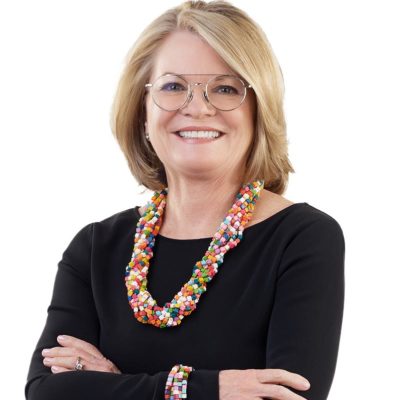

By: Dr. Jill Birch
2022: The Decade to Deliver

Oh no, not another year like no other? Alas it’s true.
If we thought that 2020 was a hellion year, how about 2021? Yes, the initial shock of a global attack on respiratory systems subsided, but the variants of the virus sent us spinning. Silently, the pandemic has transformed our lives and shaped our perspectives on a bunch of fronts: medically, morally and mentally. We became different people. We have become different leaders.
And now a new challenge awaits: emerging successfully into what many are calling a second “roaring 20s”. As we think about what that looks like, I couldn’t help but remember the range of emotions I experienced during a visit to one of Canada’s famed corn mazes. There was excitement about facing a new challenge. Frustration at not being able to move more quickly to find the exit turn style. Disagreements as to what direction to take; the clock ticks; the group wobbles on best courses of action.
It made me think that this is exactly where we are now as we ease out of the pandemic – in the middle of a messy maze, each of us working diligently to shake off doubt, splash cold water on our tired eyes, and find a way to get the hell out.
The big lesson of any corn maze visit is that we can’t do it alone. In fact, many farmers have people whose sole job it is to give out clues to help you get out. In that spirit, we’d like to share “clues” to help us navigate what’s next, how to get ready for it and how to lead yourself and your team out of the maze.
Three Big Shifts: Three New Leadership Capabilities
From the firm’s unique vantage point, there are three big shifts to pay attention to. The first is sustaining digital transformation. According to an HP study, this means continuously evolving business and operating models, turning data into assets and cultivating trust within and beyond our organizations. We fared well in these fields during the pandemic because we had to.
Organizations embraced remote work, invested in collaborative tools and went virtual (who would have thought online medical appointments would go mainstream?). But let’s face it, exhaustion and fatigue will likely cause many of us to take our foot off the gas. This isn’t the time to let up. In fact, we need to redouble efforts to sharpen our edge.
Getting ready to meet this challenge means we need to think about what it means to become a digital leader. As we take stock of the capabilities required, it will mean becoming even more tech literate. Consider embedding a data analytic scientist into major working groups to more quickly build understanding. It also means leaders need to become digital translators: both helping people see where the puck will be as well as showing how things will work. Forming communities of practice, developing partnerships, and drawing on reverse mentorship goes a long way to connecting these dots.
Another insight from that same HP study warned that 70% of digital transformation efforts will fail either through inexperience, ineffective execution or misalignment of culture. It was this last insight that caught our attention, leading to the second big shift: we need to become relational leaders. Many people tell us they’re already there – that they’re “nicer” to people. We’re thrilled you have good relations, but that’s not what relational leading is about.
Relational leaders are connectors who hold up their strategy and size up the leadership skills needed to get the job done. They know instinctively how to make others feel that they belong. They have an uncanny knack at catalyzing the perspectives of others, and in turn, this strengthens culture, building what we call “connective intelligence”.
But a problem has emerged preventing leaders from accelerating performance. It’s the need to brush up our skills for onboarding and coaching. While many leaders have great coaches, it’s another thing to be a great coach or mentor. In this light, leaders need to own the accountability that they have to support others.
And it’s these skills that lead us to last big shift. To effectively compete in a world that is volatile, uncertain, complex and ambiguous, we need to become disruptive leaders. One of the skills that helps leaders disrupt is to share great stories of strength. As we close out this last edition of the Ampersand, we share a story you may wish to use to inspire your team. It’s a story of grit, innovation, resilience and commitment – all attributes we know we’re going to need a lot of in the coming year.

Dr. Kati Kariko arrived in the U.S. from Hungary in her 20’s with a quest to follow her passion to conduct mRNA cell research. She found herself unable to find a permanent job because of this unshakeable yet narrow focus. Now 66, she is celebrated around the world for her role in laying the foundation for the vaccines produced by Pfizer-BioNtech and Moderna.
She did so against incredible odds and largely without support because her ideas were so unconventional. In a telling comment, one of her colleagues said, “The one key to real scientific understanding is to design experiments that always tell you something, even if it is something you don’t want to hear.” And that’s how Dr. Kariko lived – her story is one of failed experiment after failed experiment, but she refused to give up.
Forty years after her relentless pursuit, what can we learn from the story of Kati Kariko? Disruptive leaders are enthusiastic problem hunters. They are obsessive about finding solutions and they are not afraid to stand out. They aren’t afraid to admit when they make mistakes and are open about what they need to learn. They don’t flinch from taking action.
As we’ve seen in each of the three shifts, the legacy of our leadership – no matter where we sit in the organization – rests in how our decisions translate into action. Our judgements tell the tale of how much we listened, how we learned, how we analyzed data, and how we understand our place in our eco-system.
None of us will ever be the same having survived the pandemic. The world shared a once-in-a-lifetime experience. The pandemic left no person, no country untouched. To not take advantage of its gifts would be a squandered opportunity. This means having a greater appreciation for equity, humility and compassion for others. Oh, and all that technology: let’s remember it’s not going to get us out of the maze, it’s only a vehicle.
As you exit the turnstile, take stock of yourself, see the world with fresh eyes and yes – take a big deep breath – make ready for a bold, new adventure that the pandemic has prepared you for. Be a digital leader, become a relational leader and by all means, disrupt. Harness every ounce of wonder and curiosity you have. But let’s promise ourselves one thing: let’s make the new “roaring 20s” the decade that leadership delivered.
———————————————————————————————————————————————————
Dr. Jill Birch is a leadership and strategic advisor, researcher and author. Jill is Founder and CEO of BirchGrove Inc., where she helps organizations develop individual leaders and teams and supports human resource partners to realize their strategic imperatives. Jill has held CEO roles as well as having been a member of several C-Suites in the not-for-profit and for-profit sectors. She worked at the Schulich School of Business where she launched their in-company leadership practices. Jill has worked extensively to build leadership development and employee retention strategies in complex organizations ranging from Atomic Energy of Canada to American Express and the Canadian Art Foundation.